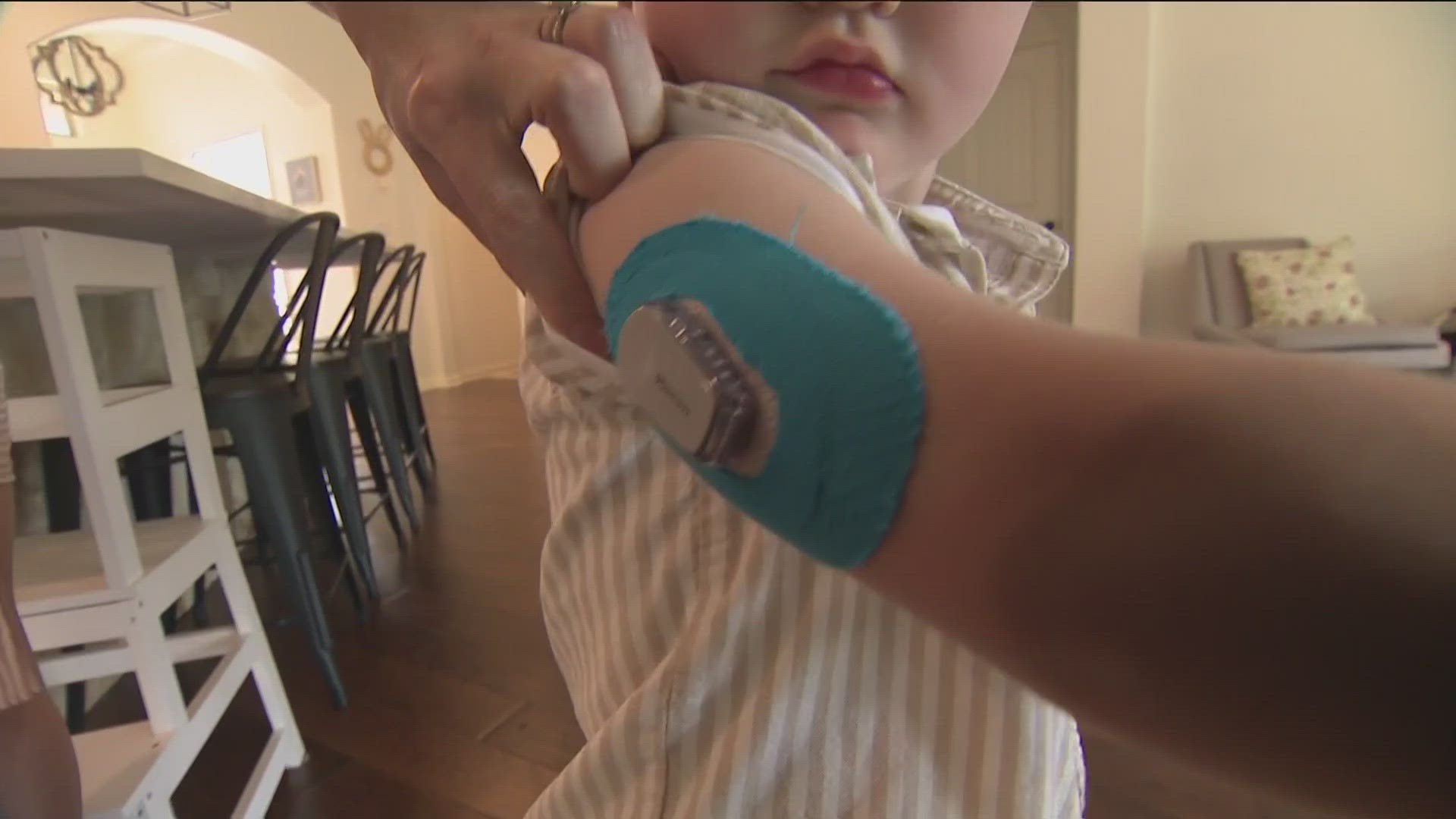LIBERTY HILL, Texas — Ally and Eric Samouse said their lives changed after they learned their 2-year-old son, Nathan, was diagnosed with Type 1 diabetes.
"It's a lot. I mean, it's very – it's scary. Your child could die at any time, like if they get too low, if you're not being on top of it. You're just basically – you're on your phone all the time making sure that his levels are where they should be," Ally Samouse said.
She said the family doesn't have a history of diabetes, and they weren't aware of any warning signs until they started potty training.
"I noticed how much he was going to the bathroom. It was just a lot – like every 15 minutes – and it was a lot every time. So I was like, 'That seems kind of weird.' But I was a first-time mom, so I was like, 'Well, maybe he just goes,' you know, 'this is just normal,'" Ally Samouse said.
She added they had also noticed some weight loss in Nathan but didn't think twice about it.
"I didn't know the symptoms because that was not something that was on our radar at all. But looking back, I was like, 'Yeah, he drank a lot of water and he had lost some weight.' But I kind of thought he was just growing too and getting taller," Ally Samouse said.
Dr. Stephen Ponder, one of Nathan's pediatricians at Baylor Scott & White McLane Children's Medical Center, said symptoms in Type 1 diabetes are often missed, mostly because the symptoms are not very specific.
"Type 1 diabetes does get missed a lot. It always has been. And I hate to say this, but it always will be until people are aware of these basic symptoms – increased thirst, increased urination, unexplained weight loss. Get that child to see a doctor as soon as possible," Ponder said.
The CDC recently said diabetes in children is on the rise, and it expects to see a 65% increase in children getting diagnosed in the next 40 years.
"I think that we are learning more and more about Type 1 diabetes every day. We have better therapies available to treat it. We have ways to predict it. We have ways to slow it down. So we've never been in a better time in history for being able to combat it," Ponder said.
The Samouses said they were fortunate they caught it early and as they learn to navigate the disease, they hope by sharing their story, they can give be an advocate for other parents so they, too, can spot the signs.
"I think that's the biggest thing to say to a family who's newly diagnosed. It doesn't get easier. That's hard to say because it really doesn't, it doesn't get easier," Ally Samouse said. "You just become more confident and it gets easier in that way, where you know what you're doing and not every day you're struggling to figure out why and how to control his levels."

